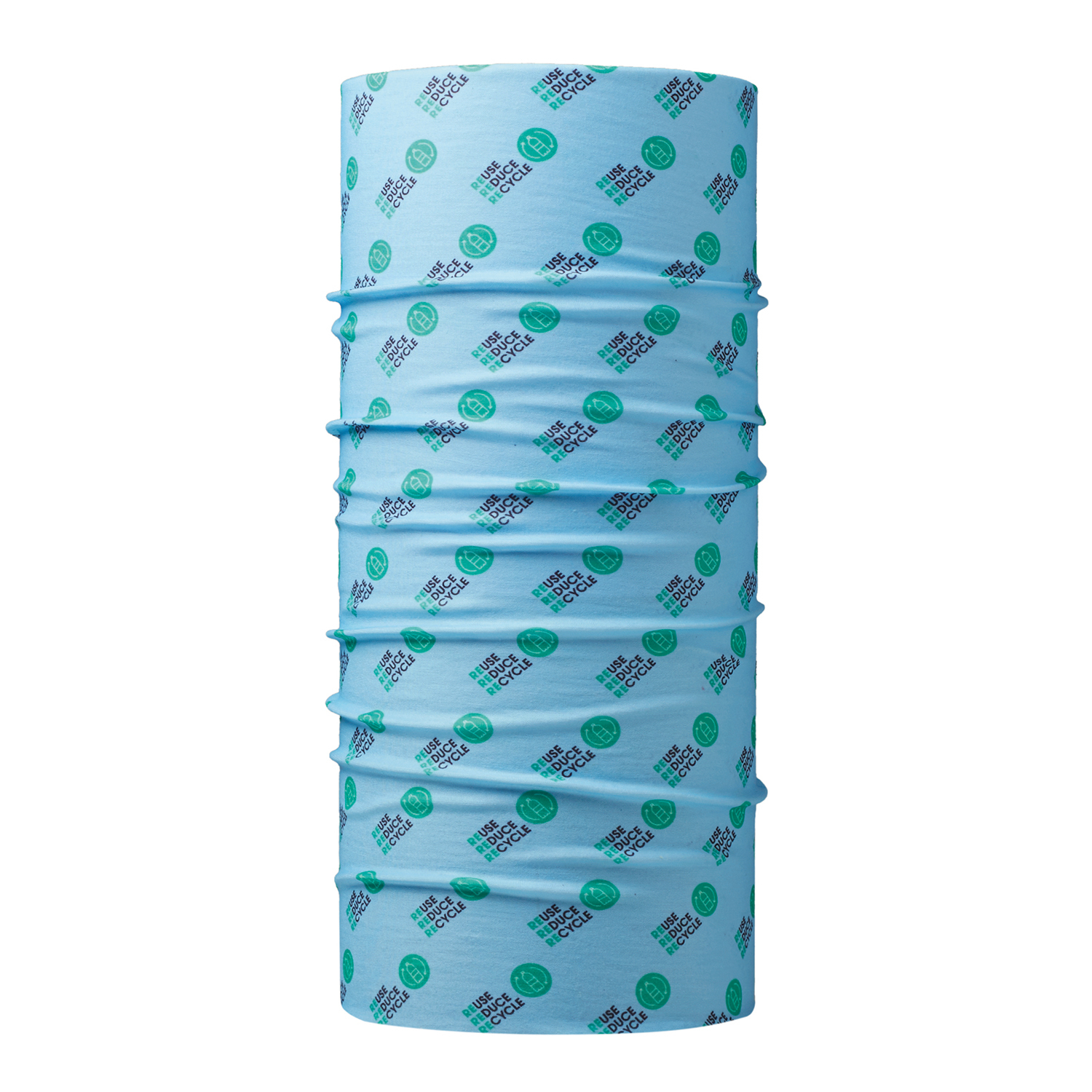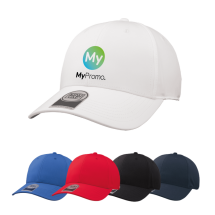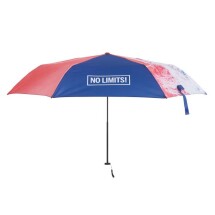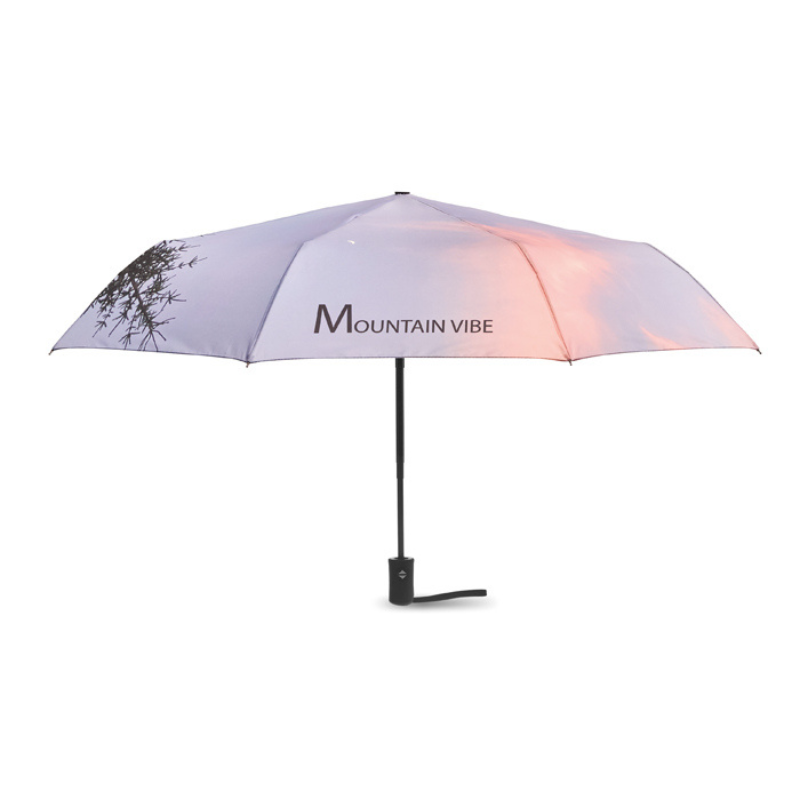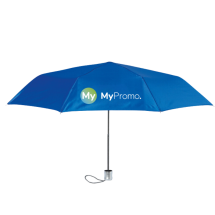Recycled Polyester
What is Recycled Polyester?
Recycled polyester, often referred to as rPET, is a sustainable material made from repurposed plastic waste, primarily sourced from PET bottles and other plastic containers. This innovative material plays a significant role in the manufacturing and promotional gifts industries, providing an eco-friendly alternative to virgin polyester and helping to reduce plastic pollution.Recycled polyester came into prominence as a solution to the growing plastic waste problem. The concept emerged in the late 20th century, with increased environmental awareness and advancements in recycling technology. The process of making recycled polyester involves collecting and cleaning plastic waste, which is then shredded into small flakes. These flakes are melted down and reformed into fibres, which can be spun into yarn and woven or knitted into fabric.
The Characteristics of Recycled Polyester
Recycled polyester shares many properties with its virgin counterpart, making it a versatile material in various applications. It is known for its durability, resilience, and resistance to stretching and shrinking. The material is also quick-drying and maintains its shape well, even after multiple washes. Additionally, recycled polyester is lightweight and can be easily dyed, making it a popular choice for vibrant and lasting colours in fabrics.
Applications and Examples of Recycled Polyester Products
Recycled polyester is widely used in the textile industry, particularly in the production of clothing, accessories, and home textiles. Many leading fashion brands have embraced rPET to create sustainable apparel lines, including jackets, trousers, dresses, and activewear. In the realm of promotional products, recycled polyester is commonly used to make branded items such as tote bags, lanyards, caps, and T-shirts, providing companies with an environmentally responsible way to promote their brands.
The Advantages of Using Recycled Polyester
There are several advantages to using recycled polyester in manufacturing. One of the most significant benefits is its positive environmental impact. By diverting plastic waste from landfills and oceans, recycled polyester helps reduce pollution and conserves resources that would otherwise be used to produce virgin polyester. The production of rPET also requires less energy and water compared to the manufacturing of new polyester, further reducing its environmental footprint.
Recycled Polyester Compared to Other Materials
When compared to other materials, recycled polyester stands out for its sustainability and performance. Unlike natural fibres such as cotton, which require extensive water and pesticide use, rPET is derived from existing plastic waste, making it a more eco-friendly option. While materials like nylon and acrylic also offer durability, recycled polyester's lower environmental impact gives it a competitive edge in the market.
Potential Challenges of Recycled Polyester
Despite its many benefits, there are some challenges associated with recycled polyester. The quality of rPET can vary depending on the source and processing methods, which may affect the material's consistency and performance. Additionally, while recycled polyester is more sustainable than virgin polyester, it is still a synthetic fibre and contributes to microplastic pollution when washed. Manufacturers and consumers need to be aware of these issues and continue to seek ways to minimise the environmental impact.
In summary, recycled polyester is a crucial material in the shift towards more sustainable manufacturing practices. Its use in both everyday products and promotional items highlights its versatility and environmental benefits. As technology advances and recycling processes improve, the potential for recycled polyester to replace more traditional, less sustainable materials will continue to grow.
| Property/Aspect | Recycled Polyester (rPET) | Virgin Polyester | Cotton | Nylon | Acrylic |
|---|---|---|---|---|---|
| Source | Plastic waste (e.g., PET bottles) | Petroleum-based | Natural (cotton plants) | Petroleum-based | Petroleum-based |
| Durability | High | High | Medium | High | High |
| Resilience | High | High | Medium | High | Medium |
| Resistance to Stretching/Shrinking | High | High | Low | High | Medium |
| Quick-Drying | Yes | Yes | No | Yes | Yes |
| Weight | Lightweight | Lightweight | Varies (generally heavier) | Lightweight | Lightweight |
| Ease of Dyeing | Easy | Easy | Easy | Easy | Easy |
| Environmental Impact | Lower (recycling reduces waste) | High (resource-intensive) | High (water and pesticides) | High (resource-intensive) | High (resource-intensive) |
| Energy/Water Use in Production | Lower (recycling process) | High | High (cultivation and processing) | High | High |
| Microplastic Pollution | Yes (when washed) | Yes (when washed) | No | Yes (when washed) | Yes (when washed) |
| Sustainability | High | Low | Medium | Low | Low |
| Variability in Quality | Can vary | Consistent | Consistent | Consistent | Consistent |
What is recycled polyester?
Recycled polyester, often referred to as rPET, is a sustainable material made from repurposed plastic waste, primarily sourced from PET bottles and other plastic containers. The process involves cleaning, shredding, and melting the plastic waste to create new polyester fibers.
How is recycled polyester made?
The production of recycled polyester involves collecting plastic waste, cleaning it thoroughly, and then shredding it into small flakes. These flakes are melted down and reformed into fibers, which can then be spun into yarn and woven or knitted into fabric.
What are the environmental benefits of using recycled polyester?
Recycled polyester helps reduce plastic pollution by diverting plastic waste from landfills and oceans. It also conserves resources by requiring less energy and water compared to the production of virgin polyester. Additionally, it reduces greenhouse gas emissions and the reliance on petroleum, a non-renewable resource.
Is recycled polyester as durable as virgin polyester?
Yes, recycled polyester shares many properties with virgin polyester, including durability, resilience, and resistance to stretching and shrinking. It maintains its shape well, even after multiple washes, and is quick-drying and lightweight.
What are the common uses of recycled polyester?
Recycled polyester is widely used in the textile industry for making clothing, accessories, and home textiles. It is popular in the production of sustainable apparel lines by leading fashion brands, including jackets, trousers, dresses, and activewear. It is also used for promotional products like tote bags, lanyards, caps, and T-shirts.
